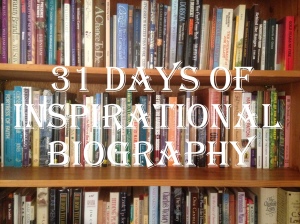Some years I go I saw, somewhere, a poem that I really loved. I looked up the author and found she had written a whole book of them, so I got it, I think possibly from a used book seller on Amazon. But it’s hard to just pick up a book of poems and start reading through, so it sat undisturbed on my bookshelf for a very long time. Then one day I saw it and noticed the author’s name again, and thought it looked a little familiar. I looked it up, and …yes, the author of Songs of a Housewife: Poems by Marjorie Kinnan Rawlings, was also the author of a book I dearly loved, The Yearling. So that put the book higher on my to-be-read list! I finally put it on my desk, where I’d pick it up in between doing other things and read a couple to a handful at a time.
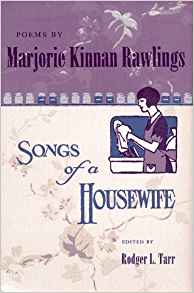 Rodger L. Tarr edited the book and explains in the introduction that the poems were originally in a newspaper column that Rawlings wrote in the NY Rochester Times-Union between 1926 and 1928. He includes a few pictures of the column, which sported the icon and typeset he used on the cover. It came about at a time when newspapers wanted to expand beyond just the news and provide entertainment as well. They were published mostly six days a week over two years until she moved to Florida, resulting in some 495 poems, about half of which are published in this book.
Rodger L. Tarr edited the book and explains in the introduction that the poems were originally in a newspaper column that Rawlings wrote in the NY Rochester Times-Union between 1926 and 1928. He includes a few pictures of the column, which sported the icon and typeset he used on the cover. It came about at a time when newspapers wanted to expand beyond just the news and provide entertainment as well. They were published mostly six days a week over two years until she moved to Florida, resulting in some 495 poems, about half of which are published in this book.
Tarr goes into a brief history of her writing career (her first story was published when she was eleven) and family life. She was writing feature articles for the newspaper when she proposed a weekly poetry column for women, particular housewives. Her editor was “skeptical at first” (p. 4), but finally let her try. The poems became a “cultural phenomenon” (p. 1). Sometimes readers asked her for a poem on a specific subject.
She explained her perspective in an interview:
I was brought up to believe in the modern myth that housekeeping is only drudgery, and the housewife is a downtrodden martyr. I thought that any seemingly contented housewives were only ‘making the best of it.’ When I first began housekeeping in my own home, I felt that I had entered the ranks of the mistreated.
After a time I began to realize, to my amazement, that I didn’t feel at all downtrodden, and that I was thoroughly enjoying myself. I began to look at other domestic ‘martyrs’ from a new angle, and I have learned many things.
I have found that there is romance in housework: and charm in it; and whimsy and humor without end. I have found that the housewife works hard, of course–but likes it. Most people who amount to anything do work hard, at whatever their job happens to be. The housewife’s job is home-making, and she is, in fact, ‘making the best of it’; making the best of it by bringing patience and loving care to her work; sympathy and understanding to her family; making the best of it by seeing all the fun in the day’s incidents and human relationships.
The housewife realizes that home-making is an investment in happiness. It pays everyone enormous dividends. There are huge compensations for the actual labor involved…
There are unhappy housewives, of course. But there are unhappy stenographers and editresses and concert singers. The housewife whose songs I sing as I go about my work, is the one who likes her job (pp. 6-7).
She was writing at a time when feminism was coming to the fore, and she “was fully committed to a woman’s right to share equally in the workplace…Yet she also took the firm position that women who choose to stay home are also professionals” (p. 7).
Tarr divides the poems into six categories and at the bottom of each shares the date when it was originally published. They cover the gamut from cooking, family happenings, housework, friends and relatives, “philosophical nuggets,” and nature. Sometimes they express kind of a smiling frustration: usually they’re cheery.
The poem that started it all for me was “The Symphony of Supper-time”
I like the sound of silver
When the table’s being set,
In the early Winter twilight,
With the lamps unlighted yet.
I like to hear the kitchen door
Swing slowly out, and then,
When Mary passes, laden, through,
Swing slowly back again.
I like to hear the kettle sing;
The hissing of the roast;
The children coming in from play,
A hungry, noisy host.
I like to hear the murmurings
When my dessert appears.
The symphony of supper-time
Is music to my ears! (p. 35).
With so many poems so many days in a row, not all of them are winners. But I marked several that I particularly liked. Here are a few:
A Prayer for Housewives
Let me have endless patience, first of all,
And not grow weary when the quick doors slam,
Or when small fingers stain the new-washed wall.
Let me ignore the mud tracked o’er the jamb!
Let me be tireless, for the hours are long.
Let me be merry, when I want to weep.
And if my days may not move like a song,
Grant me, at night, the healing touch of sleep.
May I remember small, important things–
An empty cookie jar is such a crime!
Is it too much to pray at times for wings?
How else, some days, to have the meals on time!
And if there’s any fun to come my way,
Or any laughter due me, Lord, decree it!
And where there’s beauty in the every-day,
Oh, let me not be blinded! Let me see it! (p. 102).
“Mistress and House” begins:
A gracious mistress for this gracious place,
She moves in harmony with flowers and birds;
Her voice is gentle, filled with gentle words
And there is sunlight on her quiet face.
It ends with “She crowns its beauty with her womanhood” (p. 111).
In “Treasure,” she says she’ll let her son, Tom, off from chores for a bit because he’s deep into reading Treasure Island, and closes with
He treads the ground unseeing, starry-eyed;
Plays, eats and sleeps and studies in a trance.
His mind consorts with pirates and with ships,
In high adventure. He has found romance.
Not mine the voice to call him from the realm,
Where sailors’ parrots cry and silver gleams!
He has found treasure past life’s power to steal.
He’s keeping company, these days, with dreams (p. 155).
In “Aunt Ida’s Letters,” after discussing her “ramblings” and picturing what she looks like as she writes, she says:
And through her talk of life, and things,
The beauty of her spirit sings.
And when her letter-writing’s done,
There will be somehow less of sun (p. 156).
After describing “A Peaceful House,” she closes with:
I knock. And in the mistress’ eyes
The source of this sweet peace is seen.
Her love has made her calm and wise–
Her love has made this house serene (p. 191).
After discussing various aspects of dealing with “Old Clothes,” she concludes, “Old friends forgive old clothes, because/Friendship is never out of style! (p. 198).
After describing a host’s gracious “Hospitality,” she concludes:
But did you know these things material
Welcomed me less than those that have no form?
It was your kindness that was beautiful,
It was your spirit’s grace that kept me warm.
You called me friend. You made me one of you.
I was no more a stranger and apart.
You give to hospitality a clue–
Finer than open hands, the open heart (p. 226).
I could empathize with the last stanza of “Fooling Myself”:
I fool myself elaborately,
Some other line of work pursuing.
I seize each task so eagerly–
Except the one I should be doing!
Tarr says that to Rawlings, “Nature is a representation of God’s favor, although God as a concept seldom enters directly into her poems. Instead, she relies upon faith, which she sees as a transcendental force that runs through nature. There is a large element of Thoreau in Rawlings….Nature is divine, or at least a reflection of divinity” (p. 11). I would disagree with that view of nature, believing instead that God created it and it points us to Him (Psalm 19:1-6; Romans 1:18-23). But I didn’t really see that philosophy reflected in the poems about nature included here. Most of them just show a pleasure in and enjoyment of nature.
A few of her poems would not be politically correct today. In one ode to her cook stove, she calls it her “black slave, humble and low” (p. 123). Some are a little gossipy. In one, she asserts that, just like in poker, “A full house beats a pair” at home, meaning that a home full of noisy children was better than “quiet, childless homes” with their “sedate and stupid choices” (p. 117), odd since she had no children of her own, but made up one for the persona of her columns.Maybe she regretted not having children – or maybe she was just catering to the way she thought her audience would feel. But it seems more than a little insensitive.
Most of her poems, however, bring a smile or a moment of thought or sweet reflection. I can imagine eagerly looking up her column in a newspaper each day. The quiet, kind, serene “mistress of the house” she portrays in many of the poems make me want to be more more like that kind of homemaker. These may not be the highest form of poetry, but for the most part they convey truth, beauty, perspective, understanding, and fun, a worthy goal of any artistic expression.
(Sharing with Semicolon‘s Saturday Review of Books, Wise Woman, Literary Musing Monday, Carole‘s Books You Loved)
Save

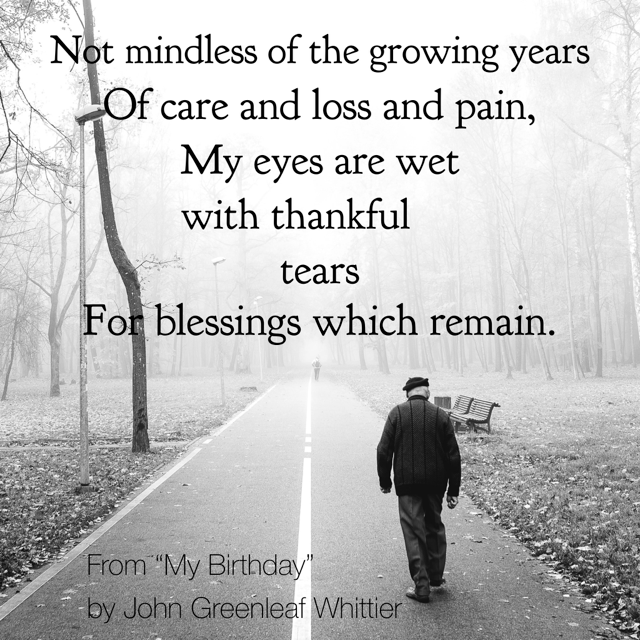


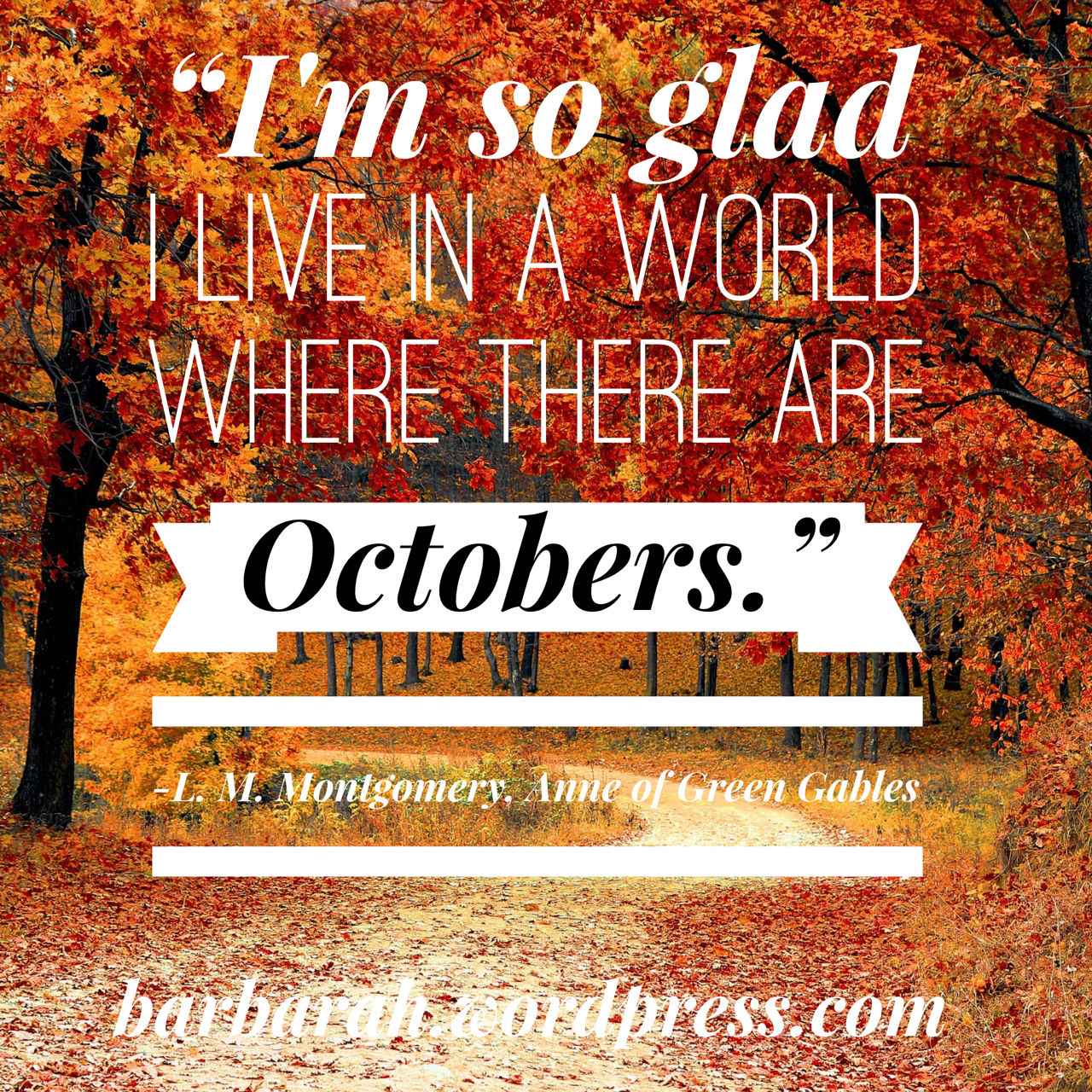


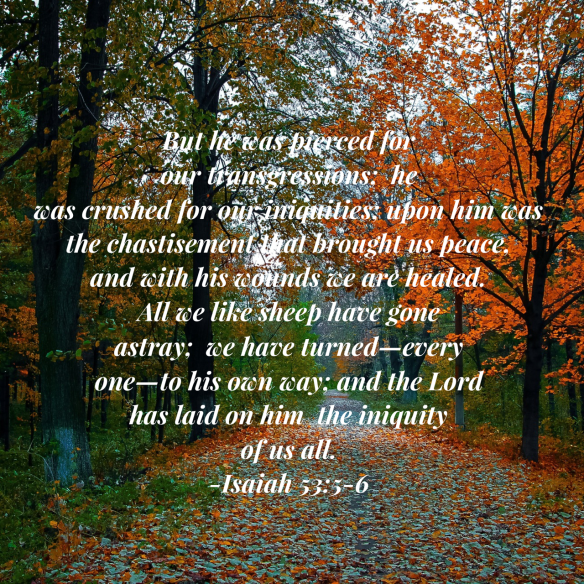
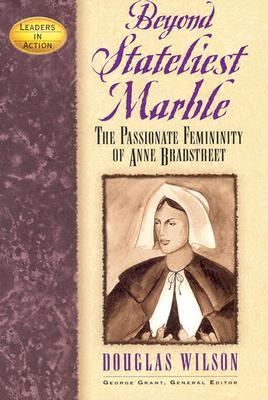 I finally got to it this past month:
I finally got to it this past month: 

